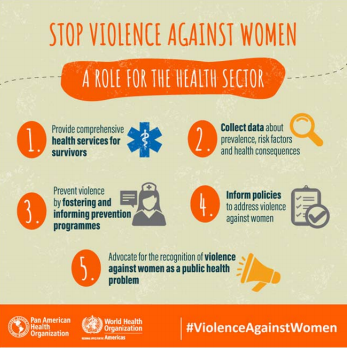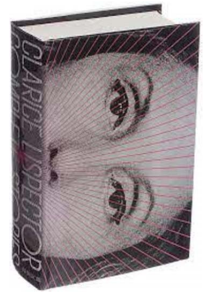Questões de Vestibular UNICAMP 2021 para Vestibular - Primeira Fase - Provas Q e Z - Biológicas e Saúde
Foram encontradas 72 questões
Catherine Fletcher, Tue 4 Feb 2020
The decision by a UK University to close history, modern languages and politics degrees in favour of more “careerfocused” courses has been widely criticised. The problem lies in reducing university education to what sells to employers. A society – and a world – urgently needs people who have the education to think about big issues, which aren’t only scientific or technological: they’re also about the ways that people have made, and continue to make, decisions. The humanities matter. And it matters that students from all backgrounds have the opportunity to join in these world-changing discussions.
Roger Brown, Mon 10 Feb 2020
Catherine Fletcher is completely correct to warn about the damage that current policies are doing to the humanities. But her warning comes much too late. As I and other scholars have shown, the problem started with a government green paper which declared that the fundamental purpose of higher education was to serve the economy. Until we recover the idea that higher education is as much about the public good as anything else, we will never be able to sustain the humanities as an essential component of a balanced curriculum. Unfortunately, there is very little sign that this has been grasped by any of our current policymakers.
(Adaptado de www.theguardian.com/education/2020/feb/10/humanities-are-notthe-right-courses-to-cut. Acessado em 22/05/2019.)
Os textos acima concordam quanto à identificação de
um problema nos cursos universitários no Reino Unido,
mas divergem quanto

English lacks a gender-neutral singular pronoun to correspond with singular pronouns like everyone or someone, and as a consequence they has been used for this purpose for over 600 years. Recently though, they has also been used to refer to a person whose gender identity is nonbinary, a sense that is increasingly common in published text, social media, and in daily personal interactions between English speakers. There's no doubt that its use is established in the English language, which is why it was added to the Merriam-Webster dictionary in September of 2019. Nonbinary they was also prominent in the news in 2019. Congresswoman Pramila Jayapal (WA) revealed in April that her child is gender-nonconforming and uses they. And the American Psychological Association’s blog officially recommended that singular they be preferred in professional writing over “he or she” when the reference is to a person whose gender is unknown or to a person who prefers they.
(Adaptado de https://www.merriam-webster.com/words-at-play/word-of-the-year/ they. Acessado em 29/04/2020.)
De acordo com o texto, o fato de uma palavra simples, como o pronome “they”, ter sido escolhida como a palavra do ano de 2019 se justifica pela necessidade de

(Disponível em https://www.paho.org/en/topics/violence-against-women. Acessado em 24/08/2020.)
Qual das medidas abaixo é recomendada no cartaz?
There will come soft rains and the smell of the ground, And swallows circling with their shimmering sound; And frogs in the pools singing at night, And wild plum trees in tremulous white; Robins will wear their feathery fire, Whistling their whims on a low fence-wire; And not one will know of the war, not one Will care at last when it is done. Not one would mind, neither bird nor tree, If mankind perished utterly; And Spring herself, when she woke at dawn Would scarcely know that we were gone.
(Disponível em https://poets.org/poem/there-will-come-soft-rains. Acessado em 24/08/2020.)
O poema destaca
‘The Complete Stories,’ by Clarice Lispector

By Terrence Rafferty
July 27, 2015
There’s a whiff of madness in the fiction of Clarice Lispector. The “Complete Stories” of the Brazilian writer, edited by Benjamin Moser and sensitively translated by Katrina Dodson, is a dangerous book to read quickly or casually because it’s so consistently delirious. Sentence by sentence, page by page, Lispector is exhilaratingly, arrestingly strange, but her perceptions come so fast, veer so wildly between the mundane and the metaphysical, that after a while you don’t know where you are, either in the book or in the world. So it’s best to approach her with some caution. For the ordinary reader — that is to say, for most of us — immersion in the teeming mind of Clarice Lispector can be an exhausting, even a deranging, experience, not to be undertaken lightly. (Pack food, water, a first aid kit and plenty of sunblock.)
Her stories are full of strange words, in strange combinations, and her “Complete Stories” is a remarkable book, proof that she was — in the company of Jorge Luis Borges, Juan Rulfo and her 19th-century countryman Machado de Assis — one of the true originals of Latin American literature.
THE COMPLETE STORIES
By Clarice Lispector
Edited by Benjamin Moser
Translated by Katrina Dodson
645 pp. New Directions. $28.95.
(Adaptado de https://www.nytimes.com/2015/08/02/books/review/the-completestories-by-clarice-lispector.html. Acessado em 21/07/20.)
No texto acima, o livro de Clarice Lispector recebe uma
crítica